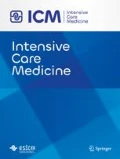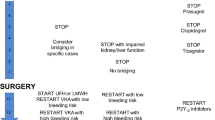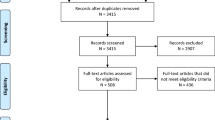Abstract
Purpose
ICU discharge is often delayed by a requirement for intravenous vasopressor medications to maintain normotension. We hypothesised that the administration of midodrine, an oral α1-adrenergic agonist, as adjunct to standard treatment shortens the duration of intravenous vasopressor requirement.
Methods
In this multicentre, randomised, controlled trial including three tertiary referral hospitals in the US and Australia, we enrolled adult patients with hypotension requiring a single-agent intravenous vasopressor for ≥ 24 h. Subjects received oral midodrine (20 mg) or placebo every 8 h in addition to standard care until cessation of intravenous vasopressors, ICU discharge, or occurrence of adverse events. The primary outcome was time to vasopressor discontinuation. Secondary outcomes included time to ICU discharge readiness, ICU and hospital lengths of stay, and ICU readmission rates.
Results
Between October 2012 and June 2019, 136 participants were randomised, of whom 132 received the allocated intervention and were included in the analysis (modified intention-to-treat approach). Time to vasopressor discontinuation was not different between midodrine and placebo groups (median [IQR], 23.5 [10–54] vs 22.5 [10.4–40] h; difference, 1 h; 95% CI − 10.4 to 12.3 h; p = 0.62). No differences in secondary endpoints were observed. Bradycardia occurred more often after midodrine administration (5 [7.6%] vs 0 [0%], p = 0.02).
Conclusion
Midodrine did not accelerate liberation from intravenous vasopressors and was not effective for the treatment of hypotension in critically ill patients.


Similar content being viewed by others
Data availability
De-identified data collected during the trial will be made available upon reasonable request to researchers who provide a methodologically sound proposal, after approval by the study authors, and with a signed data access agreement. Questions about data are handled by the corresponding author.
References
Thongprayoon C, Cheungpasitporn W, Harrison AM, Carrera P, Srivali N, Kittamongkolchai W, Erdogan A, Kashani KB (2016) Temporal trends in the utilization of vasopressors in intensive care units: an epidemiologic study. BMC Pharmacol Toxicol 17(1):19. https://doi.org/10.1186/s40360-016-0063-z
Lambden S, Creagh-Brown BC, Hunt J, Summers C, Forni LG (2018) Definitions and pathophysiology of vasoplegic shock. Crit Care 22(1):174. https://doi.org/10.1186/s13054-018-2102-1
Dhruva SS, Redberg RF (2010) Accelerated approval and possible withdrawal of midodrine. JAMA 304(19):2172–2173. https://doi.org/10.1001/jama.2010.1695
Mitka M (2012) Trials to address efficacy of midodrine 18 years after it gains FDA approval. JAMA 307(11):1124–1127. https://doi.org/10.1001/jama.2012.291
Smith W, Wan H, Much D, Robinson AG, Martin P (2016) Clinical benefit of midodrine hydrochloride in symptomatic orthostatic hypotension: a phase 4, double-blind, placebo-controlled, randomized, tilt-table study. Clin Auton Res 26(4):269–277. https://doi.org/10.1007/s10286-016-0363-9
Shire (2012) Clinical efficacy of midodrine in symptomatic orthostatic hypotension. https://ClinicalTrials.gov/show/NCT01515865. Accessed 31 Mar 2020
Rizvi MS, Trivedi V, Nasim F, Lin E, Kashyap R, Andrijasevic N, Gajic O (2018) Trends in use of midodrine in the ICU: a single-center retrospective case series. Crit Care Med 46(7):e628–e633. https://doi.org/10.1097/CCM.0000000000003121
Cardenas-Garcia JL, Withson M, Healy L, Koenig S, Narasimhan M, Mayo P (2014) Safety of oral midodrine as a method of weaning from intravenous vasoactive medication in the medical intensive care unit. Chest 146(4):224A. https://doi.org/10.1378/chest.1990326
Tchen S, Sullivan JB (2020) Clinical utility of midodrine and methylene blue as catecholamine-sparing agents in intensive care unit patients with shock. J Crit Care 57:148–156. https://doi.org/10.1016/j.jcrc.2020.02.011
Anstey MH, Wibrow B, Thevathasan T, Roberts B, Chhangani K, Ng PY, Levine A, DiBiasio A, Sarge T, Eikermann M (2017) Midodrine as adjunctive support for treatment of refractory hypotension in the intensive care unit: a multicenter, randomized, placebo controlled trial (the MIDAS trial). BMC Anesthesiol 17(1):47. https://doi.org/10.1186/s12871-017-0339-x
Murphy DB, Sutton JA, Prescott LF, Murphy MB (1997) Opioid-induced delay in gastric emptying: a peripheral mechanism in humans. Anesthesiology 87(4):765–770. https://doi.org/10.1097/00000542-199710000-00008
Todd JG, Nimmo WS (1983) Effect of premedication on drug absorption and gastric emptying. Br J Anaesth 55(12):1189–1193. https://doi.org/10.1093/bja/55.12.1189
Nimmo WS, Heading RC, Wilson J, Tothill P, Prescott LF (1975) Inhibition of gastric emptying and drug absorption by narcotic analgesics. Br J Clin Pharmacol 2(6):509–513. https://doi.org/10.1111/j.1365-2125.1975.tb00568.x
Levine AR, Meyer MJ, Bittner EA, Berg S, Kalman R, Stanislaus AB, Ryan C, Ball SA, Eikermann M (2013) Oral midodrine treatment accelerates the liberation of intensive care unit patients from intravenous vasopressor infusions. J Crit Care 28(5):756–762. https://doi.org/10.1016/j.jcrc.2013.05.021
Whitson MR, Mo E, Nabi T, Healy L, Koenig S, Narasimhan M, Mayo PH (2016) Feasibility, utility, and safety of midodrine during recovery phase from septic shock. Chest 149(6):1380–1383. https://doi.org/10.1016/j.chest.2016.02.657
Buckley MS, Barletta JF, Smithburger PL, Radosevich JJ, Kane-Gill SL (2019) Catecholamine vasopressor support sparing strategies in vasodilatory shock. Pharmacotherapy 39(3):382–398. https://doi.org/10.1002/phar.2199
O'Donnell B, Synnott A (2002) Midodrine, an alternative to intravenous vasopressor therapy after spinal surgery. Eur J Anaesthesiol 19(11):841–842. https://doi.org/10.1017/s0265021502251352
Sharma S, Bhambi B (2005) Successful treatment of hypotension associated with stunned myocardium with oral midodrine therapy. J Cardiovasc Pharmacol Ther 10(1):77–79. https://doi.org/10.1177/107424840501000109
Sharma S, Lardizabal JA, Bhambi B (2008) Oral midodrine is effective for the treatment of hypotension associated with carotid artery stenting. J Cardiovasc Pharmacol Ther 13(2):94–97. https://doi.org/10.1177/1074248408317709
Poveromo LB, Michalets EL, Sutherland SE (2016) Midodrine for the weaning of vasopressor infusions. J Clin Pharm Ther 41(3):260–265. https://doi.org/10.1111/jcpt.12375
Low PA, Gilden JL, Freeman R, Sheng KN, McElligott MA (1997) Efficacy of midodrine vs placebo in neurogenic orthostatic hypotension. A randomized, double-blind multicenter study. Midodrine Study Group. JAMA 277(13):1046–1051
Jankovic J, Gilden JL, Hiner BC, Kaufmann H, Brown DC, Coghlan CH, Rubin M, Fouad-Tarazi FM (1993) Neurogenic orthostatic hypotension: a double-blind, placebo-controlled study with midodrine. Am J Med 95(1):38–48. https://doi.org/10.1016/0002-9343(93)90230-m
Shimosato S, Etsten BE (1969) The role of the venous system in cardiocirculatory dynamics during spinal and epidural anesthesia in man. Anesthesiology 30(6):619–628. https://doi.org/10.1097/00000542-196906000-00009
Guay J, Nishimori M, Kopp SL (2016) Epidural local anesthetics versus opioid-based analgesic regimens for postoperative gastrointestinal paralysis, vomiting, and pain after abdominal surgery: a cochrane review. Anesth Analg 123(6):1591–1602. https://doi.org/10.1213/ANE.0000000000001628
Shi WZ, Miao YL, Yakoob MY, Cao JB, Zhang H, Jiang YG, Xu LH, Mi WD (2014) Recovery of gastrointestinal function with thoracic epidural vs. systemic analgesia following gastrointestinal surgery. Acta Anaesthesiol Scand 58(8):923–932. https://doi.org/10.1111/aas.12375
Zoumprouli A, Chatzimichali A, Papadimitriou S, Papaioannou A, Xynos E, Askitopoulou H (2017) Gastrointestinal motility following thoracic surgery: the effect of thoracic epidural analgesia. A randomised controlled trial. BMC Anesthesiol 17(1):139. https://doi.org/10.1186/s12871-017-0427-y
Reintam Blaser A, Malbrain ML, Starkopf J, Fruhwald S, Jakob SM, De Waele J, Braun JP, Poeze M, Spies C (2012) Gastrointestinal function in intensive care patients: terminology, definitions and management. Recommendations of the ESICM Working Group on Abdominal Problems. Intensive Care Med 38(3):384–394. https://doi.org/10.1007/s00134-011-2459-y
Ladopoulos T, Giannaki M, Alexopoulou C, Proklou A, Pediaditis E, Kondili E (2018) Gastrointestinal dysmotility in critically ill patients. Ann Gastroenterol 31(3):273–281. https://doi.org/10.20524/aog.2018.0250
Laurence D (2017) Midodrine-induced bradycardia in the ICU. Chest 152(4):A418. https://doi.org/10.1016/j.chest.2017.08.444
Acknowledgements
The members of the MIDAS study group are Peter Santer, Matthew H. Anstey, Maria D. Patrocínio, Bradley Wibrow, Bijan Teja, Denys Shay, Shahzad Shaefi, Charles S. Parsons, Timothy T. Houle, Matthias Eikermann, Kwok M. Ho, Stefan J. Schaller, Tharusan Thevathasan, Lea Albrecht, Stephanie Grabitz, Khushi Chhangani, Pauline Y. Ng, Alexander Levine, Alan DiBiasio, Robert Palmer, Erina Myers, Rashmi Rauniyar, Todd Sarge, Flora Scheffenbichler, and Alok Gupta.
Funding
This study was in part funded by philanthropic donations from Jeffrey and Judy Buzen to Matthias Eikermann: funds were allotted to support time and effort of study personnel. The funders had no role in the design and conduct of the study; collection, management, analysis and interpretation of the data; preparation, review or approval of the manuscript; and the decision to submit the manuscript for publication.
Author information
Authors and Affiliations
Consortia
Contributions
Concept and design: MHA, TTH, ME. Acquisition, analysis, or interpretation of data: PS, MHA, MDP, BW, BT, DS, SS, CSP, TTH, ME. Drafting of the manuscript: PS, MHA, BT, ME. Critical revision of the manuscript for important intellectual content: PS, MHA, MDP, BW, BT, DS, SS, CSP, TTH, ME. Statistical analysis: PS, TTH, ME. Supervision: MHA, ME. ME had full access to all of the data in the study and takes responsibility for the integrity of the data and the accuracy of the data analysis. All authors read and approved the final manuscript.
Corresponding author
Ethics declarations
Conflicts of interest
Matthias Eikermann has received unrestricted funds from philanthropic donors Jeffrey and Judy Buzen and grants from Merck & Co. outside of the submitted work. All other authors declare no conflicts of interest.
Ethical approval
This study was performed in line with the principles of the Declaration of Helsinki. Approval was granted by the local institutional review boards at Massachusetts General Hospital (Partners Human Research Committee, #2016P002045), Sir Charles Gairdner Hospital (Sir Charles Gairdner Hospital HREC, #2015-098), and Beth Israel Deaconess Medical Center (Committee on Clinical Investigations, #2018P000162).
Informed consent
Written informed consent was obtained from all subjects or their legally authorised representatives.
Additional information
Publisher's Note
Springer Nature remains neutral with regard to jurisdictional claims in published maps and institutional affiliations.
The members of the MIDAS study group are listed in “Acknowledgements”.
Electronic supplementary material
Below is the link to the electronic supplementary material.
Rights and permissions
About this article
Cite this article
Santer, P., Anstey, M.H., Patrocínio, M.D. et al. Effect of midodrine versus placebo on time to vasopressor discontinuation in patients with persistent hypotension in the intensive care unit (MIDAS): an international randomised clinical trial. Intensive Care Med 46, 1884–1893 (2020). https://doi.org/10.1007/s00134-020-06216-x
Received:
Accepted:
Published:
Issue Date:
DOI: https://doi.org/10.1007/s00134-020-06216-x




